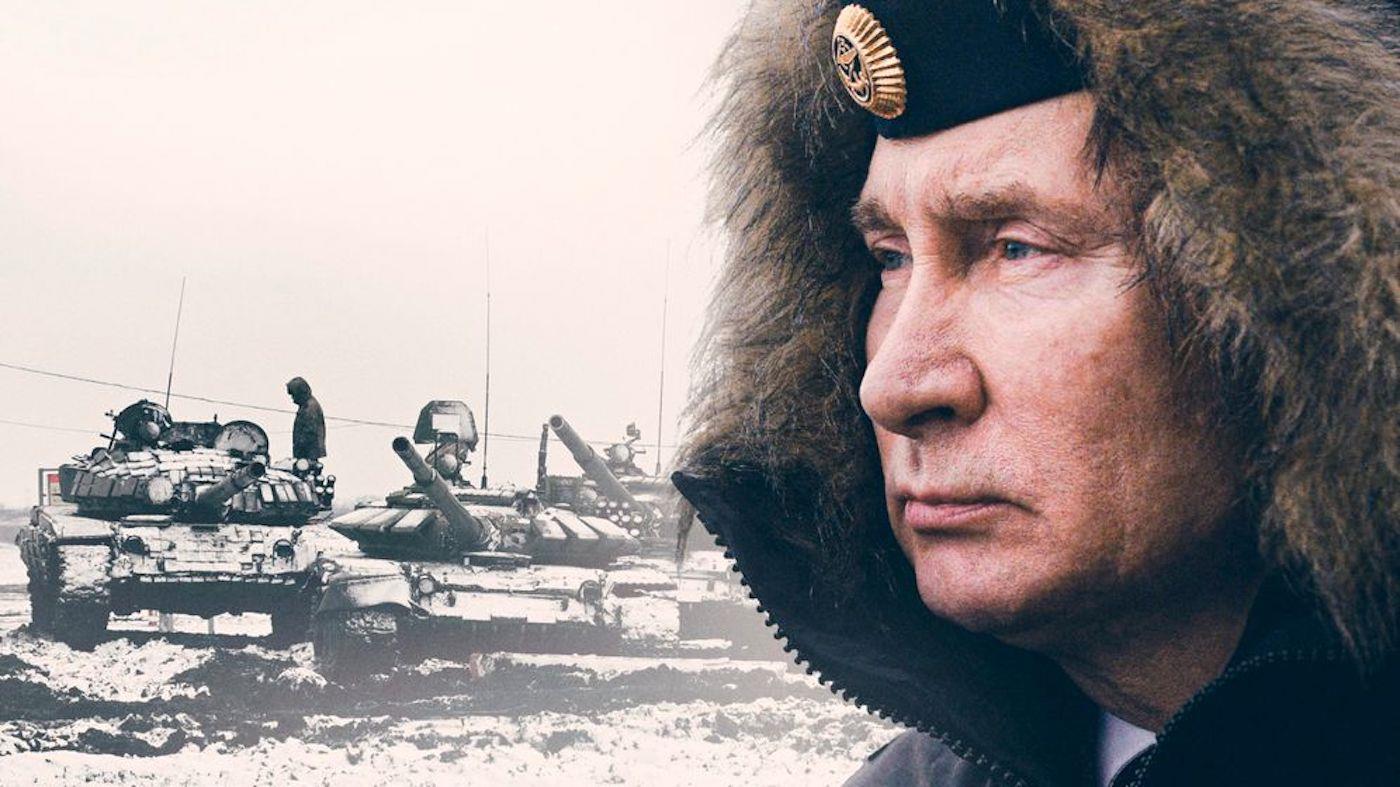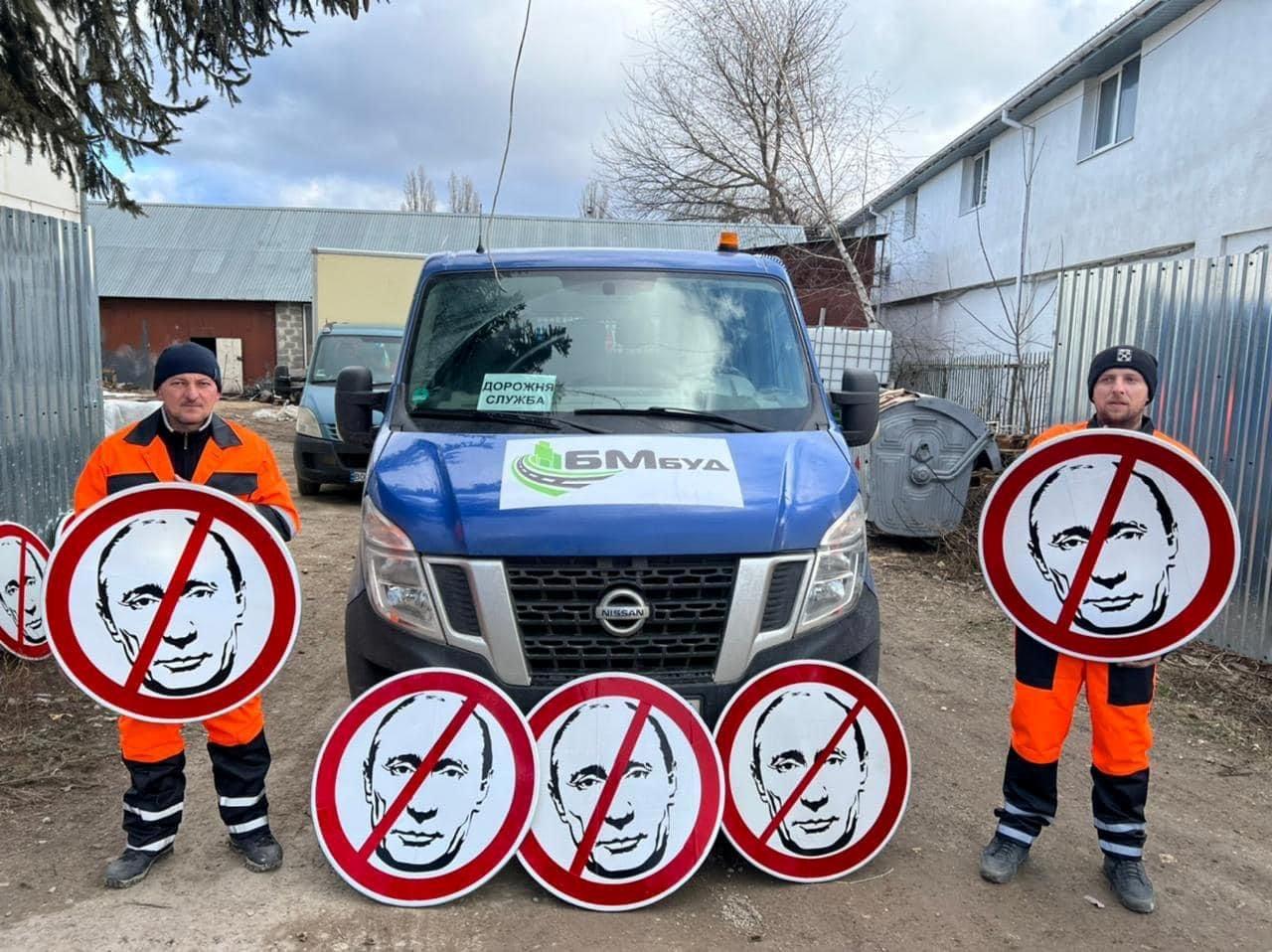(MENAFN- Asia Times)
OLOMOUC, Czech Republic — Central Europe has seen an apparent spike in anti-Russia sentiment since President Vladimir Putin launched last month's invasion of Ukraine.
On Thursday, a chain of hotels in the Czech Republic reportedly said it would ban all guests of Russian or Belarussian nationality. Some Czech companies have even stated they will only offer services to Russians if they show photographs of themselves protesting against the war, according to sources familiar with the situation.
Local media has reported that Russian grocery stores have recently closed due to a lack of business, while some people in the Czech Republic have pasted blank paper over Russian-language signs on storefronts. Prague has already suspended processing visa applications for Russian citizens.
Given the current context and the historical experience of many Central Europeans who suffered first from the invasion of Nazi Germany and then occupation by the communist Soviet Union in the 20th century, a rise in anti-Russian sentiment is“inevitable,” said Filip Kostelka, a professor at the European University Institute.
In some Central European countries such as Poland and the Czech Republic, more than 90% of citizens are in favor of supporting Ukraine's resistance as well as welcoming migrants fleeing from Ukraine, reckons Aleš Karmazin, a scholar at Metropolitan University Prague.
Over one million Ukrainians have already fled the country, with Poland welcoming the majority, while 139,686 have been taken in by Hungary, nearly 100,000 by Moldova, 73,000 by Slovakia and more than 50,000 by Romania.
Yet, the intense emotional outpouring of grief and solidarity with the Ukrainian people has made it difficult for nuanced debate.
Many European politicians have stressed that the Russian people are also victims of Putin's war. Western sanctions are starting to cripple their economy. In videos on social media, many Russians say they are selling their possessions to raise money to move abroad.
For the past week, tens of thousands of ordinary Russians have demonstrated on the streets against the invasion, with thousands reportedly arrested for their anti-war activism.
As of last Friday, only one independent news outlet survives in Russia while access to Western media has been restricted. The country's Duma, its parliament, voted on Friday to make an offense imprisonable for up to 15 years for spreading“fake” information about the war in Ukraine, which means anything other than the Kremlin's version of events.

Russian leader Vladimir Putin has portrayed his troop deployment into Eastern Ukraine as a 'peacekeeping' mission. Image: Twitter
Moreover, Putin's government has repeatedly blamed Western sanctions on Russia and intense criticism of Putin's invasion on“Russophobia”, as well as accusing the West of siding with what Moscow bizarrely calls“neo-Nazis” in Kiev, despite the Ukrainian president, Volodymyr Zelensky, being Jewish.
As a result, those expressing sympathy for the Russian people and criticizing anti-Russian sentiment are vulnerable to being accused of being Putin apologists — or, worse, sympathizers with the Kremlin.
However, Kostelka stressed that acts of hostility to Russians residing in countries like the Czech Republic are“rare.”
“Most Czechs understand that the Russian leadership is to blame for the aggression and that ordinary Russians are largely victims as much as Ukrainians,” he said, adding that the Czech Republic's prime minister, Petr Fiala, has emphasized that his country and its sanctions do not target ordinary Russian people but rather Putin's regime.
Likewise, Kostelka noted that the Czech Ministry of Education has also issued instructions to teachers on how to explain to pupils that their Russian classmates are not responsible for Putin's aggression.
Analysts point out that there are two issues at hand. First is history. Central Europe underwent two“occupations” during the 20th century, from Nazi Germany and then from the communist Soviet Union.
Czechoslovakia — as it was before the country split in 1993 — saw a large swathe of its territory annexed by Hitler's Third Reich in 1938, a deal signed off by Western European leaders in the notorious Munich Agreement as a way of supposedly taming Germany's aggression.
The rest of Czechoslovakia was occupied months later, while Poland was invaded by German troops in September 1939. An estimated six million Poles died during the Second World War, around a fifth of the pre-war population, according to some estimates.
After the defeat of Nazi Germany in 1945, Central Europe was quickly occupied by the Soviet Union, which imposed communist leaders in government. Moscow often used violence to keep them there.
The Soviet army brutally put down the Hungarian uprising of 1956. Eight years later, the Soviet Union sent in its tanks to quell protests in Czechoslovakia as people demanded reforms during the so-called Prague Spring.
The communist regimes of the old Warsaw Pact nations collapsed in 1989. The Soviet Union fell two years later.
For some in Central Europe, the lack of direct Western military support for Ukraine conjures up images of the 1938 Munich talks, when Western European leaders were seen as sacrificing Czechoslovak sovereignty to placate Hitler's war aims.
And the invasion of Ukraine by Russia, often perceived as the direct successor to the Soviet Union, brings back memories of Moscow's repressive tactics across Central and Eastern Europe throughout the second half of the 20th century.
“Putin's invasion of Ukraine is often likened to Hitler's expansionism or the Soviet efforts to control its 'satellite' states in Central and Eastern Europe,” said Karmazin.
These memories help explain why Central Europeans have been eager and willing to accept Ukrainian migrants, he added. And it perhaps also explains why Central Europeans often took a“very reluctant approach to migrants or war refugees from Syria or other Middle Eastern countries.”
“In the latter case, Czechs have not found any historical or identitarian bond with migrants,” Karmazin said.
The other problem is that people are often judged by the actions of their government, regardless of whether or not that administration was democratically-elected. For the case of Russia, Putin has been in power for decades, and elections are routinely described as unfree and unfair by monitor groups.
Richard Turcsányi, a senior researcher at Palacky University Olomouc, was co-author of a paper published last year titled“Chinese Pride and European Prejudice”, on how European opinions of Chinese people are shaped by their perceptions of the Chinese government.

Anti-Putin protesters in Ukraine. Image: Facebook
“The link between the negative perception of a country and the people is not the same for everyone,” Turcsányi told Asia Times.“We found that especially the liberal-leaning people try to moderate this impact, while conservative people not so much.”
“In the current context, unfortunately, it is to be expected that many people will shift their anger with Putin's actions to the innocent Russian people, who in fact can be victims of Putin as well,” he added.
Apathy over the Ukraine war would be morally and strategically wrong, Karmazin stated, but we should not resort to portraying it as a conflict between civilized states and barbarians. Nor should Russians be seen as“inherently aggressive, morally inferior and who have a war mentality built in their genetic code.”
Anti-Russian sentiment might be a negative and“unintended” outcome of sympathies with Ukraine, he added, but Russians, either living in Russia or abroad,“should not be automatically blamed for the aggressiveness of the Russian leadership.”
MENAFN07032022000159011032ID1103805684